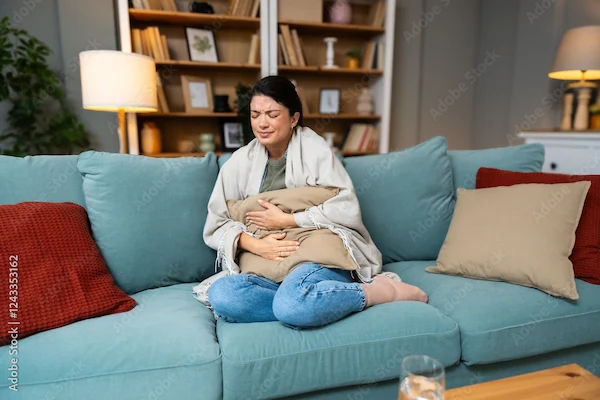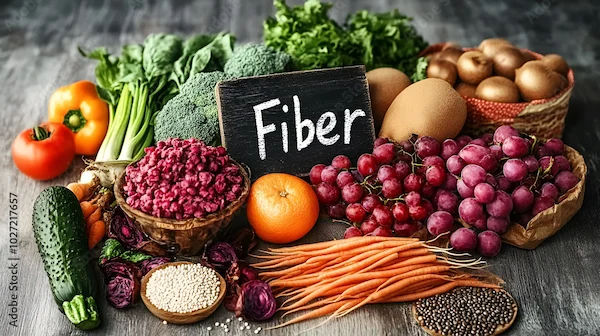Various Colon Infections
Explore more about various colon infections. Know the causes, symptoms, treatments and preventive measures and strengthen your digestive system.

Written by
Last updated on 3rd Jul, 2025
The colon is the most essential part of the large intestine. This organ is responsible for extracting water and nutrients from the digested food and forming stools. However, the colon is not immune from infections. In fact, individuals often develop various colon infections due to bacteria, viruses or parasites. Beardly, a colon infection is called colitis. It is crucial to know and comprehend the severity of these infections to adopt preventive measures.
Common Types of Colon Infections
Colon infections can be of different types. Following are some of the most common ones:
Bacterial Colon Infections
This kind of infection results in inflammatory diarrhoea; the bacteria responsible are E.coli, Salmonella and Campylobacter. The symptoms include abdominal pain, fever, bloody mucoid stool, etc.
Viral Colon Infections
Infectious Colitis is the most common type of viral colon infection. It is caused by viruses such as Rotavirus, Adenovirus, and Norovirus. The symptoms are abdominal pain, fever, and bloody stool.
Parasitic Colon Infections
Usually, Protozoa or helminths are the reasons behind parasite-derived colon infections. The symptoms can be weight loss, abdominal pain, bloating, worms in stool, and diarrhoea.
Causes and Risk Factors
The causes of various colon infections can be diverse. However, knowing them and their associated risks would allow the patient to receive the necessary medical support.
Factors Increasing Susceptibility
The following are factors that make one susceptible to most colon infections. These are:
The family history
Diet
Age
Certain antibiotics for treating irritable bowel syndrome
Health conditions like appendicitis and other infections also lead to colon infections.
Environmental and Lifestyle Influences
Poor food quality, living without proper sanitation, and drinking contaminated water are some environmental influences that cause colon infections.
Likewise, leading a sedentary lifestyle, smoking, drinking alcohol, etc., also factor in the development of colon infections.
Symptoms to Watch For
Any colon infection exhibits specific symptoms that one must not ignore.
Digestive and Intestinal Symptoms
The following symptoms indicate the possibility of infection in the colon:
Intense abdominal pain or cramping
Diarrhoea with blood
Vomiting or nausea
Bloating
Dehydration
Loss of appetite
Bloody stool
Rectal pain
Other symptoms may occur depending on the type of colon infection one develops.
Systemic Symptoms
The following symptoms may not seem related to colon infections, but they are also some possible ones to watch out for:
Headache
Indigestion
Heartburn
Electrolyte imbalance
Joint pain
Fatigue
All these accompany the digestive and intestinal symptoms of various colon infections. If one experiences these symptoms consistently, then he/she should immediately consult a doctor.
Consult Top General Gastroenterologist
Diagnosis of Colon Infections
Colon infections can be detected through the following procedures:
A thorough investigation of the symptoms by doctors can detect colon infections.
Endoscopic tests, such as colonoscopy and sigmoidoscopy (flexible), are widely used to diagnose colon infections. Doctors may also suggest imaging of the colon and abdomen to detect problems.
Stool tests and blood tests are also standard practices to detect colon infections.
Treatment Options
Colon infections in their initial stages are curable. Below are the treatment options for colon infections:
Antibiotic and Antiviral Treatments
After detecting colon infections, the doctor can prescribe antibiotics, such as metronidazole, doxycycline, ciprofloxacin, rifamycin, and ornidazole.
Supportive and Alternative Therapies
Besides typical medication, doctors can also suggest supporting and alternative treatments to cure and manage the symptoms of colon infections. These are:
Bowel rest, a low-residue diet and specific lifestyle changes like quitting smoking and drinking alcohol, practising yoga, etc. can help treat colon infections.
Also, integrating probiotics, wheatgrass, and similar herbal products into the diet is effective in treating colon infections.
However, for any of these to work, one must be persistent and patient, as these take time to show their magic.
Complications and Long-term Effects
Colon infections can be moderate to severe depending upon their type and other pre-existing complications of the patient. These infections exhibit the following complications that may take a toll on one’s health:
Short-term Complications
In the initial stage of colon infections, the patient can develop dehydration, toxic megacolon, perforation, and other symptoms.
Chronic Conditions from Infections
In their advanced stage, colon infections can lead to chronic colitis, anaemia due to blood loss through stools, osteoporosis, inflammation and also increased risk of colon cancer.
Prevention Strategies
Follow the below-mentioned tips to prevent colon infections:
Hygiene and Sanitation Practices
Checking weight, eating healthy, avoiding red meat, exercising daily, increasing Vitamin D and calcium intake, and eating more fibre would help prevent colon infections.
At the same time, adopting more hygienic sanitary practices and focusing on personal hygiene can help contain colon infections. These include washing hands before eating, disinfecting the surroundings, drinking clean water, and limiting the overuse of antibiotics.
Vaccination and Prophylaxis
Immunomodulators, influenza vaccines, pneumococcal pneumonia vaccines, human papillomavirus vaccines, and Hepatitis A and B vaccines are usually useful for reducing the severity of colon infections. However, individuals must complete the vaccination to see results.
Diet and Lifestyle Changes for Recovery
While medication and vaccinations are effective ways to treat colon infections, the patient should follow a strict diet and lifestyle change to ensure complete recovery. Here’s how:
Nutritional Considerations
Individuals with colon infections should drink more water, increase protein intake, eat fresh fruits and vegetables, opt for low-fat food, etc., for a speedy recovery.
Lifestyle Adjustments
Stress management, taking nutritional supplements, and acupuncture are some positive lifestyle modifications that show results against colon infections in the long run.
Conclusion
Colon infections can affect the overall health and well-being of individuals. In the worst case, it can also lead to more serious ailments like colon cancer. Therefore, early detection, timely diagnosis and treatment are of utmost importance. Simultaneously. Following the preventive measures diligently can help one combat the health conditions that arise from colon infections. Note that only a medical professional can provide the best possible roadmap for recovering from any colon infection.
Consult Top General Gastroenterologist
Consult Top General Gastroenterologist

Dr. Amit Pandita
Gastroenterology/gi Medicine Specialist
10 Years • MBBS. MD (INTERNAL MEDICINE) DrNB (GASTROENTEROLOGY AND HEPATOLOGY)
Delhi
Apollo Hospitals Indraprastha, Delhi

Dr. Ankit Vijay Agarwal
Gastroenterology/gi Medicine Specialist
14 Years • MBBS(Osmania), DNB(Internal Medicine ), DM ( Osmania) Consultant Gastroenterologist, Hepatologist and Advanced Therapeutic Endoscopist
Hyderabad
Apollo Hospitals Jubilee Hills, Hyderabad

Dr. Sunil Kaul
General Surgeon
30 Years • MBBS, MS, FICS, FIMSA, FMAS
Delhi
Apollo Hospitals Indraprastha, Delhi
(25+ Patients)

Dr Piyush Vishwakarma
Gastroenterology/gi Medicine Specialist
11 Years • MBBS, MD, DrNB,
Delhi
Apollo Hospitals Indraprastha, Delhi

Dr. Shivaraj Afzalpurkar
Gastroenterology/gi Medicine Specialist
13 Years • MBBS, MD General medicine (Gold medalist), DrNB (Gastroenterology), MNAMS
Bengaluru
Apollo Clinic, JP nagar, Bengaluru
Consult Top General Gastroenterologist

Dr. Amit Pandita
Gastroenterology/gi Medicine Specialist
10 Years • MBBS. MD (INTERNAL MEDICINE) DrNB (GASTROENTEROLOGY AND HEPATOLOGY)
Delhi
Apollo Hospitals Indraprastha, Delhi

Dr. Ankit Vijay Agarwal
Gastroenterology/gi Medicine Specialist
14 Years • MBBS(Osmania), DNB(Internal Medicine ), DM ( Osmania) Consultant Gastroenterologist, Hepatologist and Advanced Therapeutic Endoscopist
Hyderabad
Apollo Hospitals Jubilee Hills, Hyderabad

Dr. Sunil Kaul
General Surgeon
30 Years • MBBS, MS, FICS, FIMSA, FMAS
Delhi
Apollo Hospitals Indraprastha, Delhi
(25+ Patients)

Dr Piyush Vishwakarma
Gastroenterology/gi Medicine Specialist
11 Years • MBBS, MD, DrNB,
Delhi
Apollo Hospitals Indraprastha, Delhi

Dr. Shivaraj Afzalpurkar
Gastroenterology/gi Medicine Specialist
13 Years • MBBS, MD General medicine (Gold medalist), DrNB (Gastroenterology), MNAMS
Bengaluru
Apollo Clinic, JP nagar, Bengaluru


